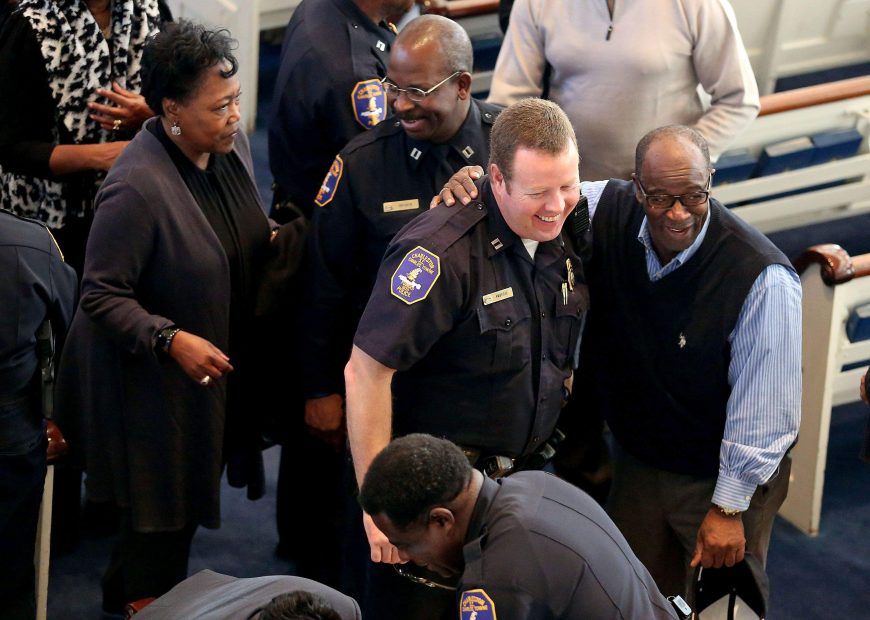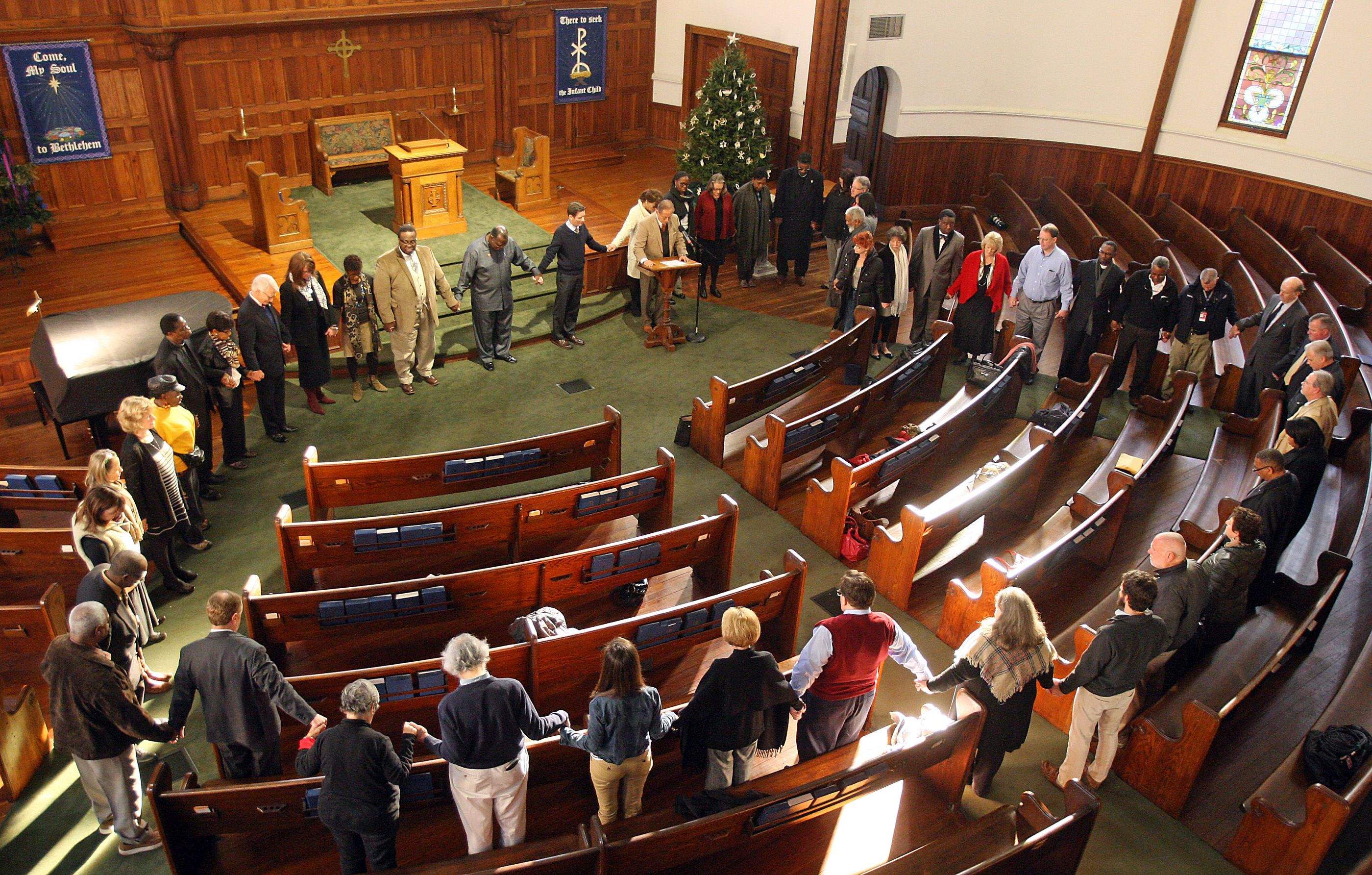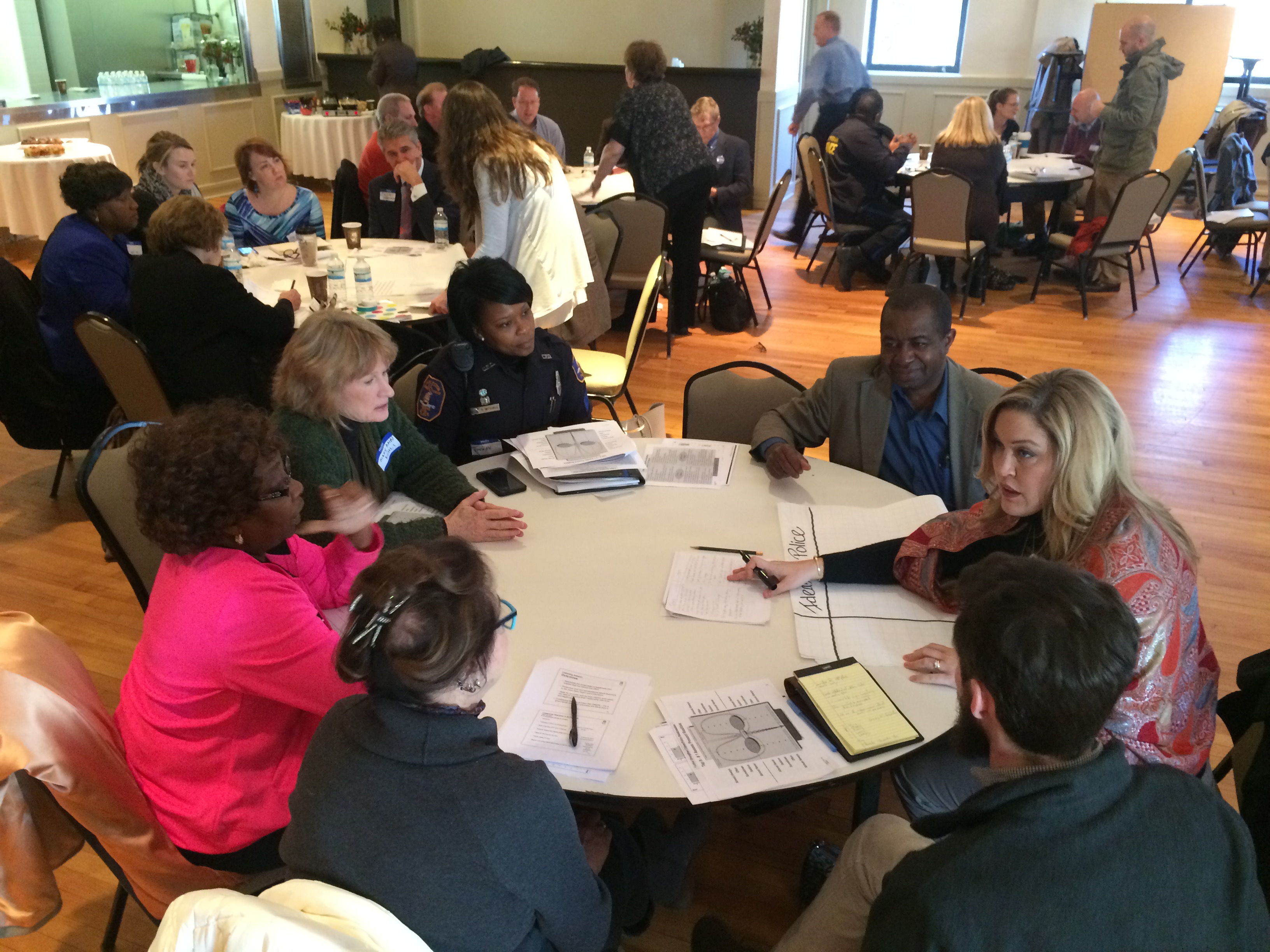*Our story began on the fateful evening of June 17, 2015, at approximately 8:06 pm when a series of events began that would challenge the Charleston SC community and test the work of its police department that began years earlier. On that night, a young, white male who had the goal of starting a race war entered the most historic black church in the region and sat down with its members during a bible study. For the next hour, he would discuss bible verses and interact with the 12 parishioners that were present.
At approximately 9:06 pm, his discussion ended with him retrieving a Glock .45 caliber pistol from a fanny pack and systematically killing those who were in attendance. At the end of his rampage, there were nine people killed and five survivors. One was purposefully left to tell the story; two, a mother and granddaughter lay in the carnage that had occurred pretending to be dead as they watched their family members, son and Aunt die. In a back office, unknown to the killer, the pastor’s wife and her young daughter hid behind a locked door under a table hoping not to be detected.
As the scope and magnitude of this event became known to the community, its potential impact and consequences were immediately apparent. The determination and compassion of all the police officers and special agents that responded from multiple local, state, and federal agencies was also clear. The question, like so many cities around the country have faced recently, centered around how the community would respond.
What occurred over the next 12 days was nothing short of remarkable. The grace, forgiveness, and unity that brought citizens together from all walks of life to demonstrate and protest their disdain for this incident and call for healing and reconciliation captured the interest and appreciation of people around the world.
With a need to honor those who were slain, the Charleston Police Department (CPD) undertook an effort to engage the entire community in conversations. Honest, raw, and potentially volatile discussions. The goal? To further strengthen the relationship between police and citizens, with trust and legitimacy.
The Charleston Illumination Project began as a heartfelt response to the shocking murders that occurred in the Summer of 2015. It created an internal desire within the Department to “illuminate,” or shine a light on, the corners of the community needing improved relationships between citizens and police. With the full support of Police Chief Greg Mullen and then Mayor Joseph P. Riley, Jr., the journey began.
A Polarity Lens was a critical tool used throughout The Illumination Project℠, a radically participative effort to further improve police/citizen relationships, with trust and legitimacy. Having integrated the “both/and,” Polarity paradigm into the department’s leadership development, team building, and individual coaching paved the way for applying it to this 22-month and counting relationship building effort.
The purpose of the Charleston Illumination Project was To further strengthen citizen/police relationships, with trust and legitimacy.
Trust is a vital ingredient in all healthy relationships, especially one with the inherent tension of community safety (taking care of the “whole”) and individual rights (taking care of the “part”).
Legitimacy speaks to a core element of the citizen and police relationship – police exercising their authority appropriately and citizens believing they are being treated fairly.
*Excerpted from the letter from Charleston Police Chief Greg Mullen at the beginning of the Project’s first annual report.



